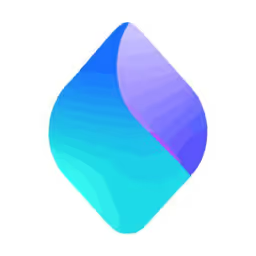useArtemis Alternatives
Considering a switch from useArtemis? We analyze 10 leading alternatives, comparing their strengths and weaknesses to inform your decision.

useArtemis is a popular tool, and for good reason. Many teams choose it for its strong email outreach features. It performs well when you need to find verified contact information and build targeted lead lists for your sales campaigns.
However, some users report a steep learning curve and occasional data inaccuracies. For this reason, we analyzed the best alternatives based on G2 reviews to help you shortlist options for a deeper look. Let's get started.
11x: Digital Workers for Sales
For teams that want to augment sales operations, digital workers are an option to consider. 11x provides autonomous agents to handle various sales tasks, which may be a relevant direction for your company.
11x is a GTM platform that uses AI agents to autonomously manage the sales process. The platform is a unified system for sales operations.
Its AI agent, Alice, finds prospects, handles email and LinkedIn outreach, and updates your CRM. A second agent, Julian, qualifies inbound leads and books meetings.
This approach means separate solutions for data enrichment, outreach, or email warmup are not required, as 11x unifies these capabilities on one platform.
useArtemis Alternatives
The following section provides a detailed breakdown of popular useArtemis alternatives. Each review examines pricing, core features, and the primary pros and cons relative to useArtemis.
1) Apollo.io
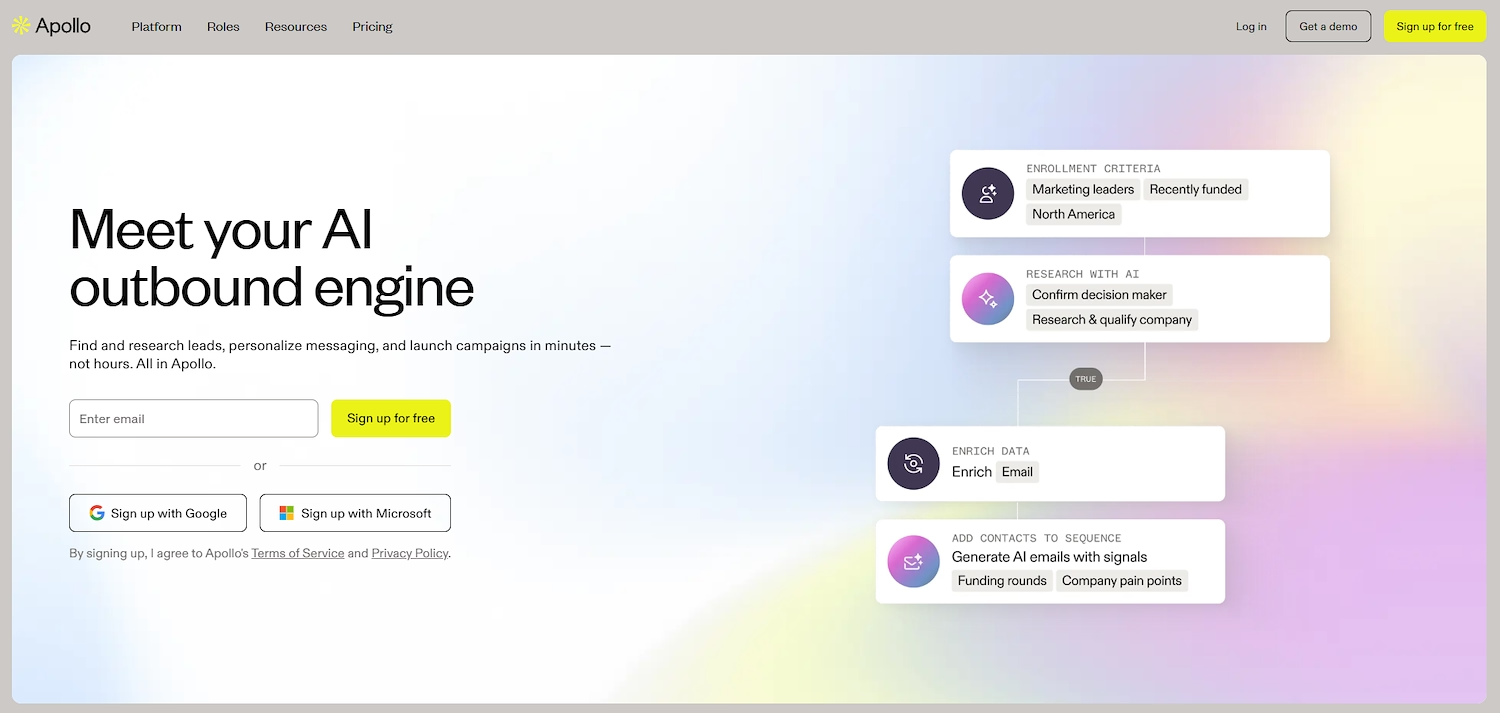
Apollo.io is a sales intelligence platform that combines a B2B database with engagement tools. It provides verified contact data, which users can segment into lists for outreach. The platform supports the execution of email campaigns directly within its system.
Additional functions include email sequences and performance analytics. It is designed for sales teams that require both lead data and outreach capabilities in one solution.
Apollo.io's Main Features
- Combines a B2B database with engagement tools in a single platform.
- Includes email sequences and performance analytics for campaigns.
- Provides verified contact data that can be segmented into outreach lists.
How Apollo.io Compares to useArtemis
Average Review score: 4.7/5 stars based on 8,904 G2 reviews.
- Apollo.io provides an all-in-one sales platform that includes a B2B database, engagement tools, and analytics. This integrated approach differs from useArtemis, which focuses more on email outreach and may require other tools for a complete sales process.
- The platform offers access to a large B2B database with over 210 million contacts. This extensive data availability can provide more lead options compared to the more specialized focus of useArtemis.
- It includes AI-powered features, such as a sales assistant and writing assistant. These tools help automate tasks and manage data, offering a different level of automation than useArtemis.
- Unlike many specialized tools, Apollo.io offers a free plan. This allows teams to test the core functionalities before they commit to a paid subscription.
Apollo.io's Limitations Compared to useArtemis
- Some users report that Apollo.io's vast database can include inaccurate contact details. This may be a consideration for teams that require the highly verified data that useArtemis focuses on.
- As an all-in-one platform, its email outreach tools might not have the same depth as a specialized solution. For instance, useArtemis provides more advanced functions specifically for complex email campaigns.
- The platform's wide range of features can sometimes result in a more complex user interface. This is different from useArtemis, which offers a more focused experience centered on outreach.
Budget and Pricing Considerations
Apollo.io offers transparent pricing with a free plan and paid tiers starting at $49 per user, making it accessible for teams to test its features. In contrast, useArtemis requires contacting sales for a quote, a model that may suit enterprises needing custom packages but lacks entry-level transparency.
2) ZoomInfo SalesOS
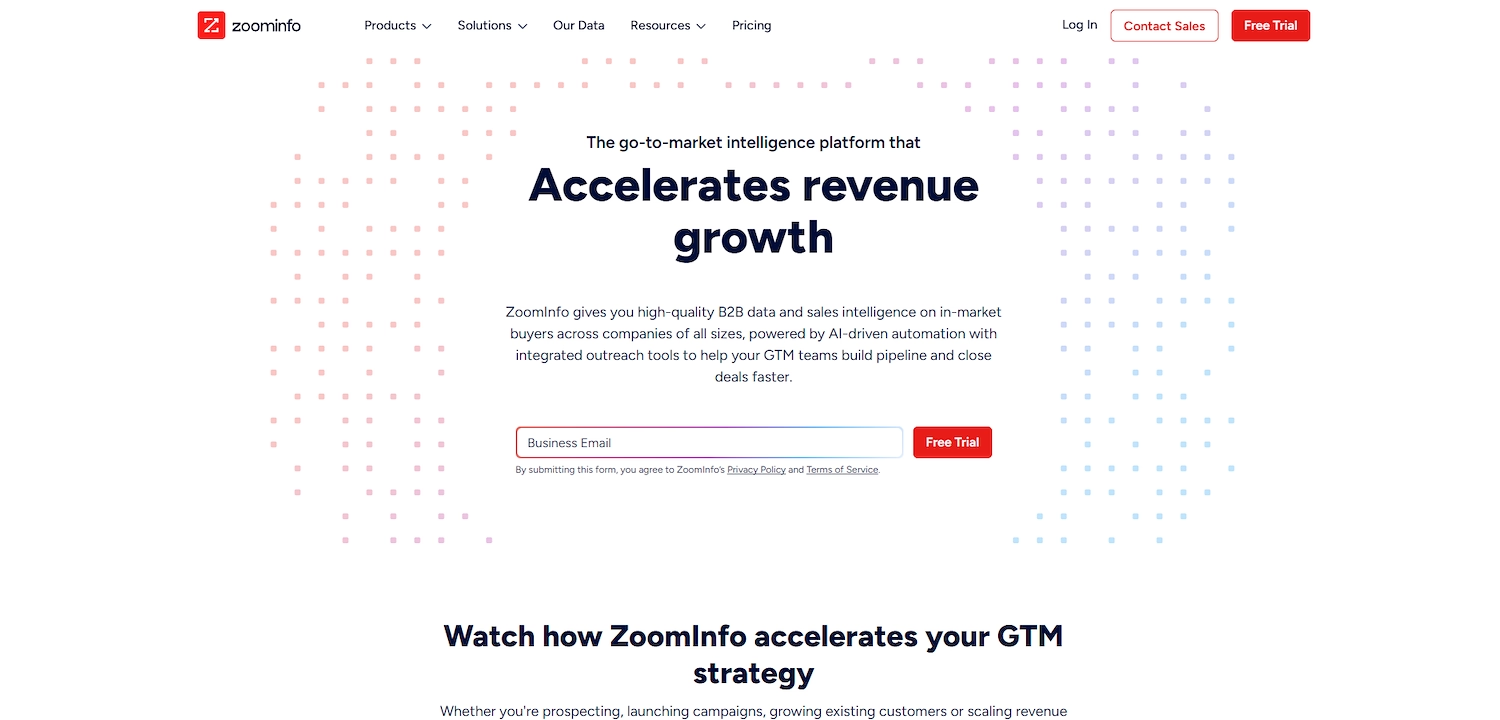
ZoomInfo SalesOS is an intelligence platform for B2B companies. It combines company data, buyer-intent signals, and engagement tools in one system to help teams find and connect with buyers.
For email outreach, it offers verified contact data for lead lists and an AI Copilot to draft messages. Sales automation supports outreach execution, and the platform enriches CRM data in real time for campaigns.
ZoomInfo SalesOS's Main Features
- Provides buyer intent data to identify prospects showing real-time signals of being ready to buy.
- Turns anonymous website page views into actionable leads for the sales pipeline.
- Includes conversation intelligence to analyze call and meeting interactions for sales insights.
- Offers predictive modeling to uncover potential customers that fit an ideal profile.
How ZoomInfo SalesOS Compares to useArtemis
Average Review score: 4.5/5 stars based on 8,738 G2 reviews.
- ZoomInfo SalesOS provides buyer intent data to identify prospects who are actively searching for solutions. This is a different approach from useArtemis, which focuses on building lists for email outreach based on user-defined criteria.
- Its AI Copilot gives recommendations on who to contact and what to say. This offers a layer of guided selling that is distinct from the direct email outreach and contact verification tools in useArtemis.
- The platform offers conversation intelligence to analyze sales calls and meetings for insights. This feature provides post-interaction analysis, whereas useArtemis centers on the pre-interaction phase of finding contacts.
- This tool has a broad database that includes company data and purchasing intent signals. This contrasts with the more specialized contact-finding and email verification focus of useArtemis.
ZoomInfo SalesOS's Limitations Compared to useArtemis
- Some users report that the platform's wide range of features creates a steeper learning curve. This contrasts with useArtemis, which provides a more focused experience centered on email outreach.
- The tool's data accuracy can sometimes be a point of concern. Users occasionally find outdated contact details, which is different from the highly verified data focus of useArtemis.
- It may lack certain specialized email outreach functions. For example, useArtemis offers dedicated email warmup features, which are not a primary component of a broad platform like ZoomInfo SalesOS.
Budget and Pricing Considerations
Both useArtemis and ZoomInfo SalesOS require contacting sales for a custom quote, as pricing can vary significantly. For the most up-to-date information, we recommend visiting ZoomInfo SalesOS 's official website.
3) Lusha
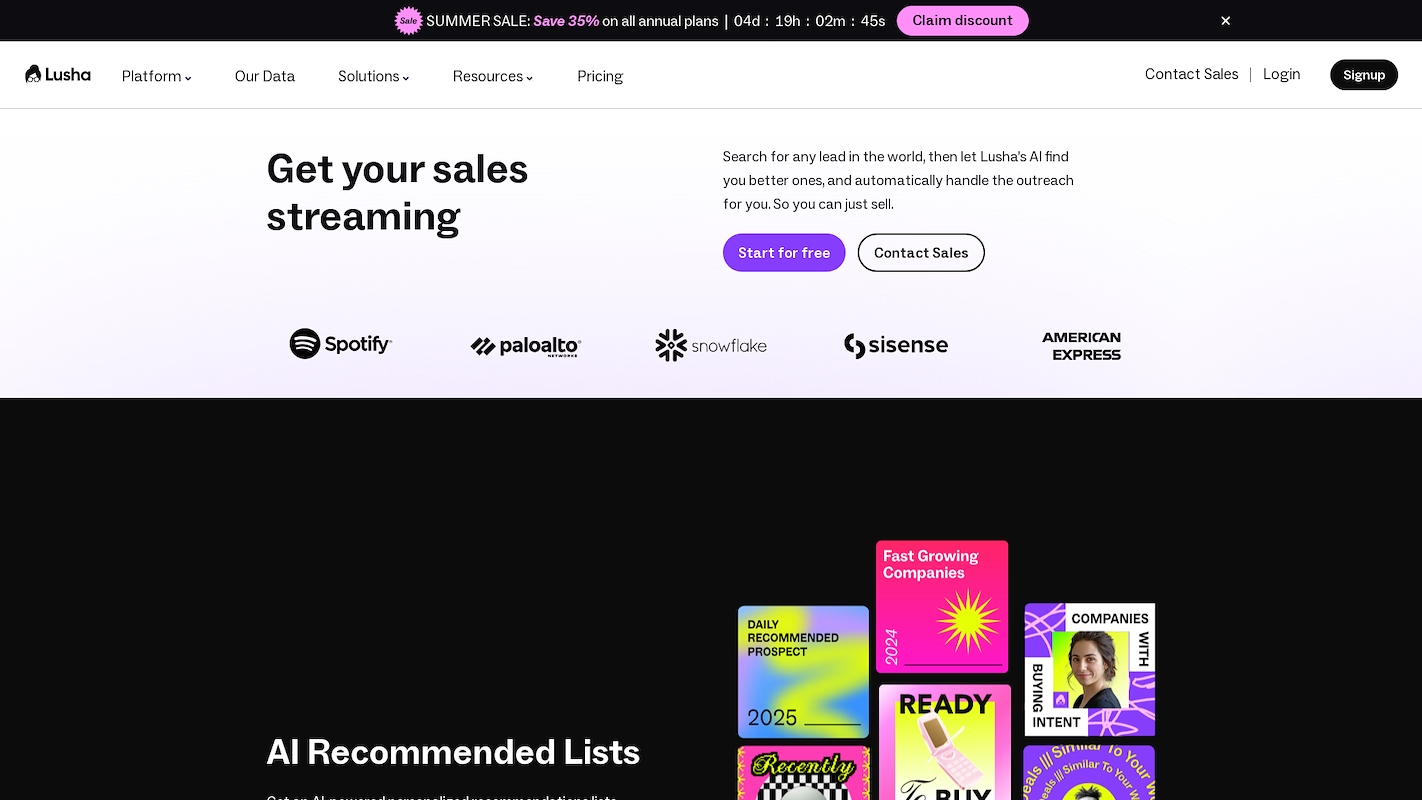
Lusha is a sales intelligence platform that uses AI to help teams find B2B leads across the globe. It allows users to build prospect lists and automate multichannel outreach, including personalized email sequences. The platform emphasizes global data coverage and compliance with regulations like GDPR and CCPA.
It integrates with popular CRMs so sales reps can focus on sales while Lusha handles data discovery.
Lusha's Main Features
- Provides daily, ICP-based lists of companies and decision-makers curated by an AI recommendation engine.
- Identifies in-market buyers using intent data and sends real-time notifications on specific triggers.
- Records and analyzes sales meetings to extract insights through its conversation intelligence feature.
- Generates live, auto-updating lead lists that continuously add fresh prospects at user-defined intervals.
How Lusha Compares to useArtemis
Average Review score: 4.3/5 stars based on 1,516 G2 reviews.
- Lusha offers AI Prospect Playlists that automatically create and update lead lists based on an ideal customer profile. This is different from useArtemis, where users typically build their lists manually.
- It provides buyer intent data to identify prospects who are actively looking for solutions. This offers a more proactive approach compared to useArtemis, which centers on finding contacts based on defined search criteria.
- The platform includes conversation intelligence to analyze sales calls and meetings for insights. This feature provides post-interaction analysis, whereas useArtemis focuses on the pre-outreach stage of finding and verifying contacts.
- Lusha provides a free plan and transparent pricing tiers. This model differs from useArtemis, which requires contacting its sales team for a custom quote.
Lusha's Limitations Compared to useArtemis
- Some users report that Lusha's database can contain outdated contact details. This is different from useArtemis, which focuses more on providing highly verified data specifically for email outreach campaigns.
- The platform lacks certain specialized email outreach functions. For instance, useArtemis provides dedicated email warmup features, which are not a primary component of Lusha's broader toolset.
- Its credit-based system can be a consideration for teams with high-volume needs. This model differs from useArtemis, which may offer packages better suited for extensive, large-scale campaigns.
Budget and Pricing Considerations
Lusha offers transparent pricing with a free plan and paid tiers starting at $36 per user per month. This model is more accessible for small teams compared to useArtemis, which requires contacting sales for a custom quote. For detailed pricing, visit Lusha's official website.
4) Cognism
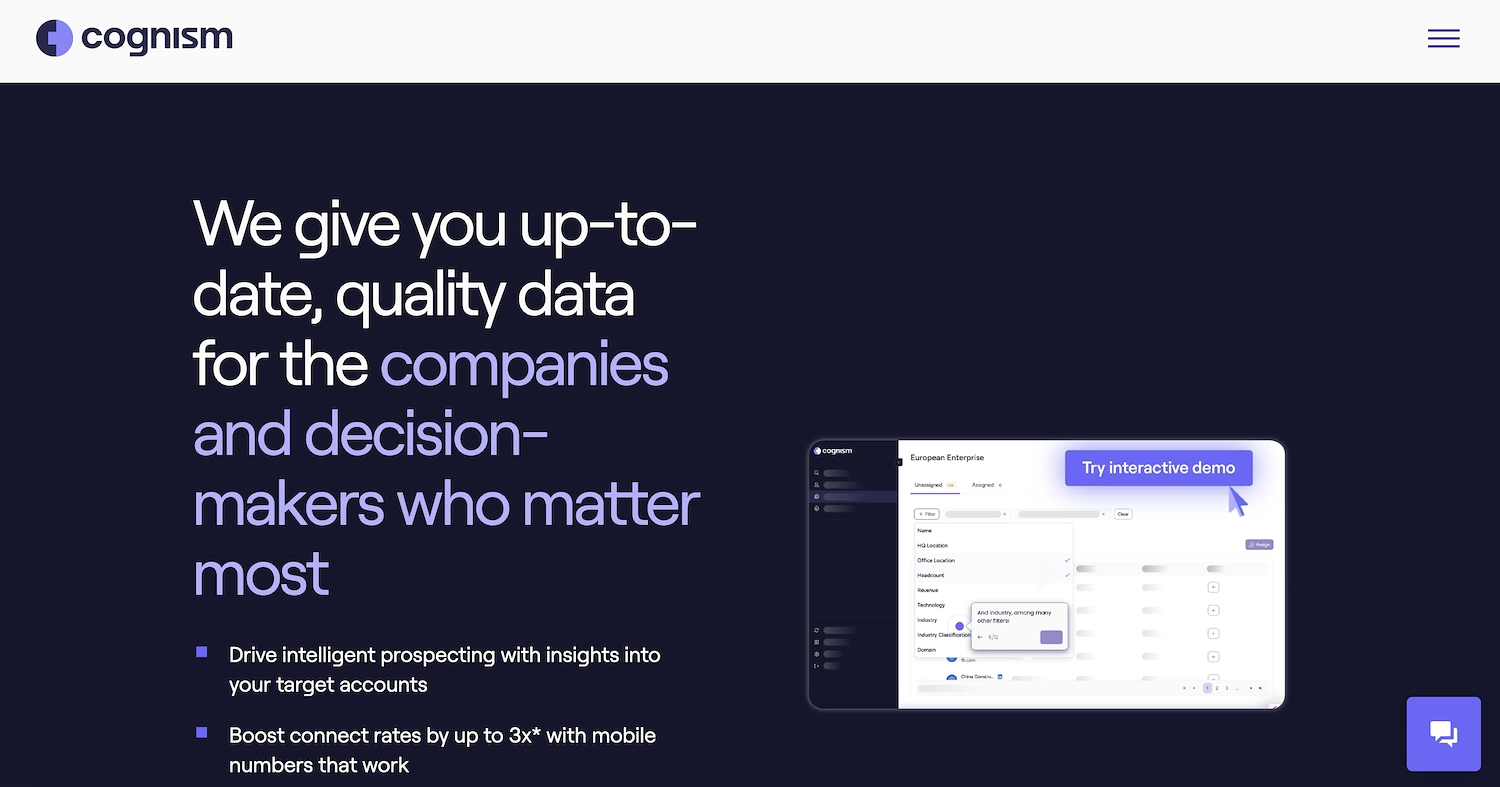
Cognism is a sales intelligence platform that offers globally compliant B2B data for sales teams to find and engage prospects. It supplies verified contact details, such as email addresses and phone numbers, for direct outreach.
This information helps companies create accurate prospect lists and supports their sales operations.
Cognism's Main Features
- Provides phone-verified mobile numbers, called Diamond Data®, which are human-checked to reduce misdials.
- Offers signal data on hiring trends, funding rounds, and technology changes to surface timely buying opportunities.
- Maintains a strong focus on European data, with extensive coverage of mobile numbers and emails for UK and EMEA contacts.
- Includes a Sales Companion browser extension that provides contact suggestions and embeds signal data into the prospecting workflow.
How Cognism Compares To useArtemis
Average Review score: 4.6/5 stars based on 1,033 G2 reviews.
- Cognism provides phone-verified mobile numbers, called Diamond Data®, which are human-checked for accuracy. This offers a different type of data verification than useArtemis, which centers on email contacts.
- The platform offers extensive data coverage for European markets. This provides a more specialized geographical focus compared to the broader data approach of useArtemis.
- It includes signal data that tracks company events like funding rounds and hiring trends. This feature helps identify timely sales opportunities, a different approach from building lists based on static criteria in useArtemis.
- This tool emphasizes its globally compliant data, with a specific focus on GDPR. This offers an added layer of security for outreach in regions with strict privacy laws, a detail less explicitly stated for useArtemis.
Cognism's Limitations Compared To useArtemis
- Cognism does not include specialized email outreach functions like email warmup. This is a core feature in useArtemis, designed to improve deliverability for large-scale campaigns.
- Some users report that its database can contain outdated email addresses. This is a potential issue for teams that rely on the highly verified email data that useArtemis specializes in providing.
- The platform's broad feature set may be excessive for teams that only need email outreach tools. In comparison, useArtemis offers a more focused solution centered specifically on finding contacts and managing email campaigns.
Budget and Pricing Considerations
Both Cognism and useArtemis require contacting sales for a custom quote, as pricing is tailored to specific business needs. For the most accurate and up-to-date pricing information, we recommend visiting Cognism's official website.
5) Seamless.ai
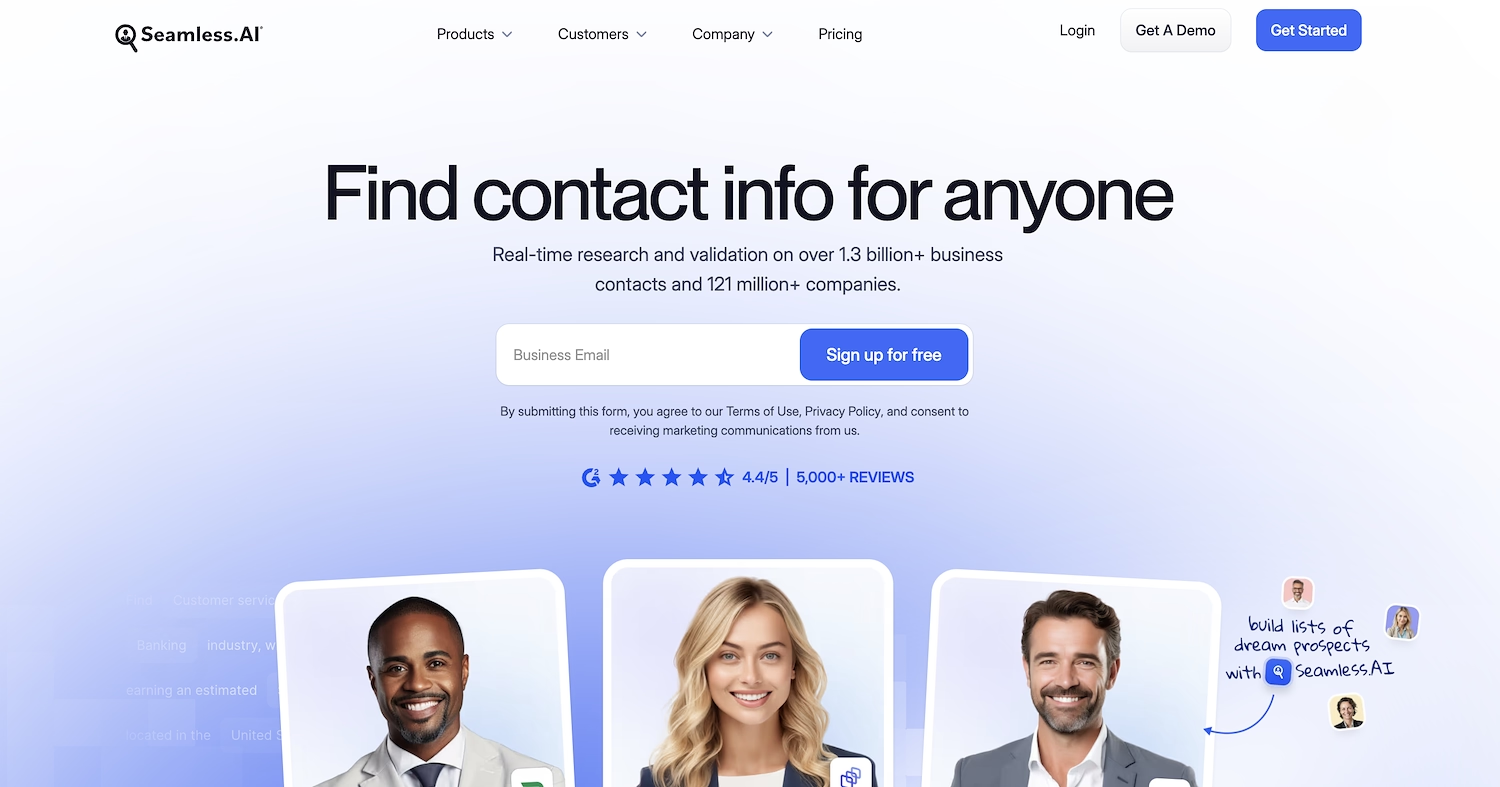
Seamless.ai is a sales intelligence platform for B2B companies. It uses a real-time search engine to find verified contact details, like emails and direct dials. Sales teams can build prospect lists for outreach campaigns and connect the data to their CRM systems.
Seamless.ai's Main Features
- Detects and provides alerts on customer or prospect role changes, capturing new contact information.
- Generates research and personalized messaging for each prospect using its pitch intelligence AI.
- Automates list-building workflows to provide continuous, hands-free pipeline generation.
- Enriches CRM and CSV files by turning an email, phone number, or domain into a complete record.
How Seamless.ai Compares To useArtemis
Average Review score: 4.4/5 stars based on 5,067 G2 reviews.
- Seamless.ai uses a real-time search engine to find contact information. This provides live data, which is different from useArtemis, where lists are built from a pre-existing database.
- Its pitch intelligence AI generates personalized messages for each prospect. This offers a layer of content automation not found in useArtemis, which focuses on providing contacts for manual outreach.
- The platform sends alerts when contacts change jobs. This feature provides timely sales triggers, a function not available in useArtemis, where list building is based on current roles.
- It automates list-building workflows for a continuous flow of new leads. This contrasts with useArtemis, where users typically build their prospect lists manually for each campaign.
Seamless.ai's Limitations Compared to useArtemis
- Some users report that Seamless.ai's real-time search can sometimes return inaccurate contact details. This is different from useArtemis, which focuses on providing highly verified data for email campaigns to ensure higher deliverability.
- It does not offer specialized email outreach functions like email warmup. In contrast, useArtemis includes this feature to improve email deliverability for large campaigns, a key consideration for teams focused purely on email outreach.
- The platform's broad feature set may be excessive for teams that only need email outreach tools. In comparison, useArtemis offers a more focused solution centered specifically on finding contacts and managing email campaigns.
Budget and Pricing Considerations
Both Seamless.ai and useArtemis require contacting sales for a custom quote on paid plans, though Seamless.ai offers a free plan to start. For the most accurate and up-to-date pricing information, we recommend visiting Seamless.ai's official website.
Consider 11x for Sales Automation
For teams that want to augment sales operations with digital workers, 11x is a relevant option. The platform uses autonomous agents to manage tasks like prospect discovery and outreach. This approach may be a good fit if you want to unify sales functions on a single system.
At 11x, we use AI to run your sales playbook. Our agent, Alice, finds accounts, enriches data, and handles outreach. A second agent, Julian, qualifies leads and schedules meetings. This approach unifies tools for intent signals and email warmup into a single platform, so no extra hires are needed.
Book a demo to see our platform in action.
6) Hunter
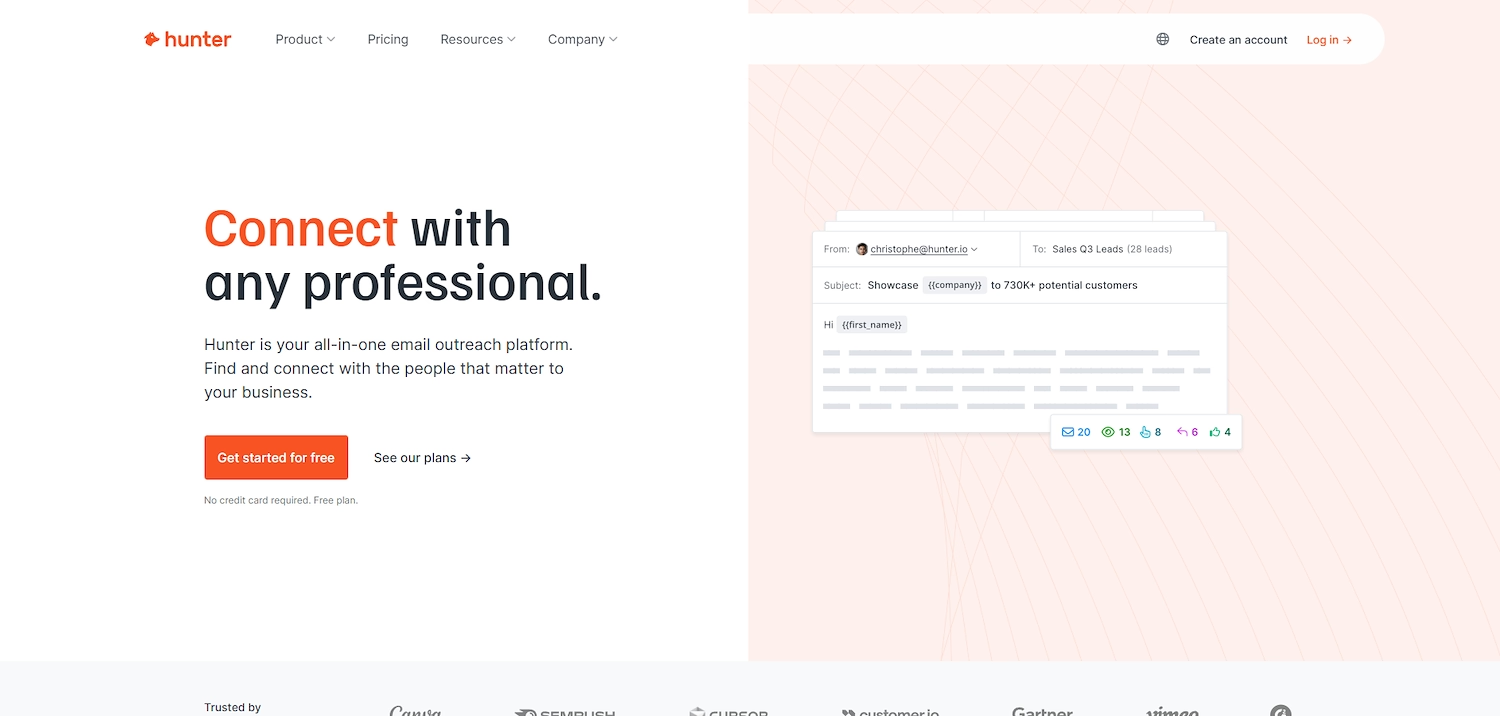
Hunter is a platform that finds professional email addresses from company domains. Users can search for contacts individually or in bulk and use the email verifier to check address deliverability before outreach.
Sales and marketing teams use the tool to build targeted contact lists for their campaigns.
Hunter's Main Features
- Finds all publicly available email addresses from a company domain or URL.
- Verifies email lists to reduce bounces and protect sender reputation.
- Includes a cold-email suite to compose messages, schedule follow-ups, and view performance analytics.
- Lists websites by the technology stack they use, allowing for tech-based targeting.
How Hunter Compares To useArtemis
Average Review score: 4.4/5 stars based on 592 G2 reviews.
- Hunter offers a free plan and transparent pricing tiers, which differs from the quote-based model of useArtemis, making it accessible for initial testing.
- It includes a built-in suite for cold emailing, allowing users to manage outreach directly. This contrasts with useArtemis, which focuses more on contact discovery and may need separate sending tools.
- The platform allows users to find leads based on the technology a company uses. This offers a different targeting angle than useArtemis, which primarily builds lists from role and company data.
- Many users report that Hunter is simple and intuitive. This is a point of difference from useArtemis, which some users find has a steeper learning curve.
Hunter's Limitations Compared To useArtemis
- Hunter does not offer a dedicated email warmup feature. This function in useArtemis helps improve deliverability for large campaigns, which can be a consideration for teams focused on outreach scale.
- The platform's data verification is less specialized than useArtemis. Some users note that its database can include outdated emails, which may impact campaigns that require highly verified contacts.
- It primarily finds emails associated with a domain. This approach differs from useArtemis, which provides more advanced list-building tools for creating highly targeted sales campaigns based on specific criteria.
Budget and Pricing Considerations
Hunter provides a free plan and transparent pricing tiers starting at $49 per month. This approach differs from useArtemis's quote-based model, making Hunter a more accessible option for teams that want to test the platform or have a smaller budget.
7) Clearbit
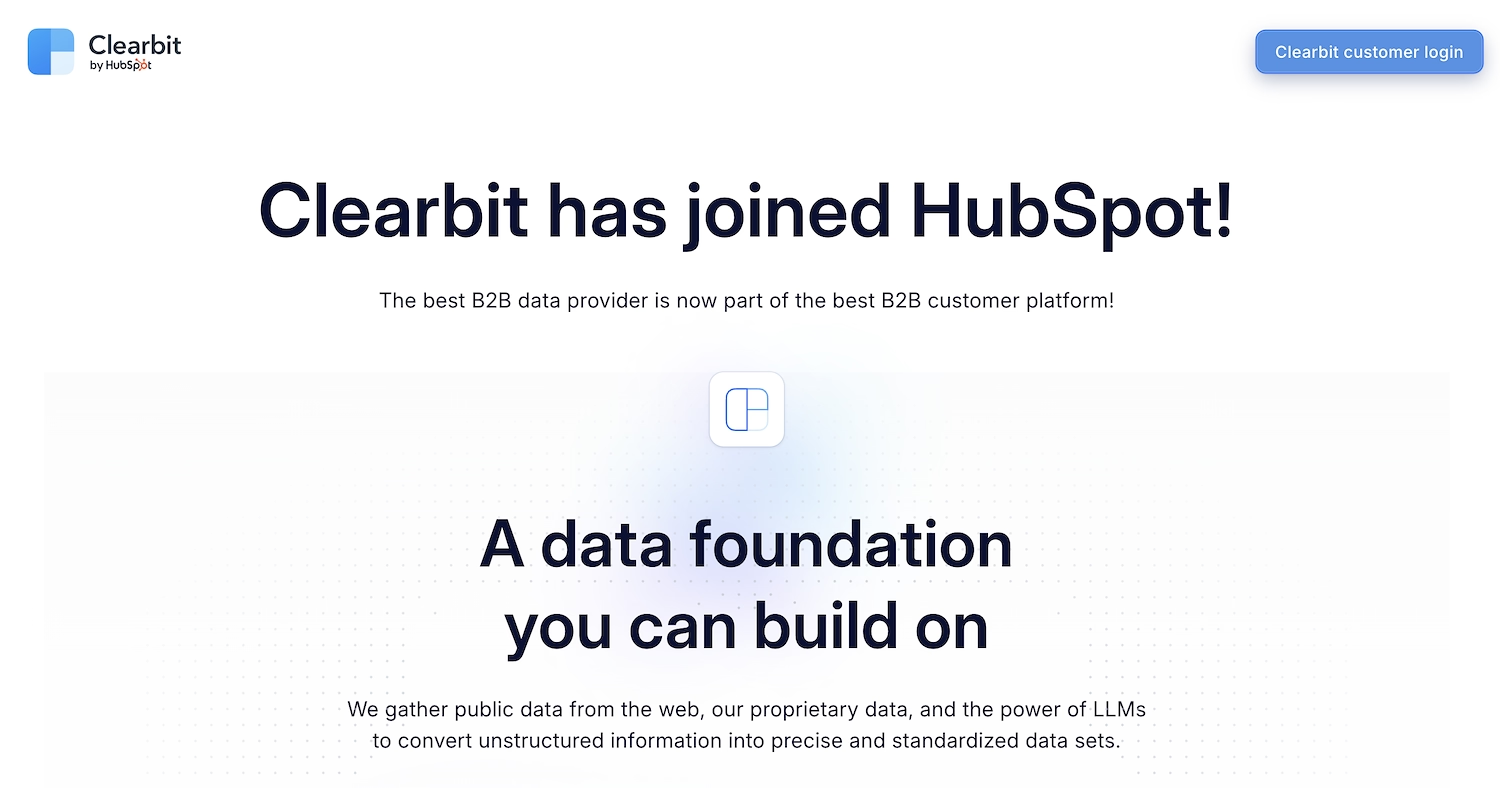
Clearbit is a marketing data platform for B2B companies. It provides firmographic and demographic data to enrich contact records. Teams use this information to build detailed prospect profiles for outreach and to support personalized communication, often starting with just an email address.
Clearbit's Main Features
- Enriches lead, contact, and account records with firmographic and demographic data from multiple sources.
- Supplies data for real-time lead scoring and routing based on industry classifications and corporate hierarchy.
- De-anonymizes website traffic to reveal visiting companies that fit an ideal customer profile.
- Shortens web forms by automatically enriching fields, which can increase conversion rates.
How Clearbit Compares To useArtemis
Average Review score: 4.4/5 stars based on 626 G2 reviews.
- Clearbit enriches existing lead and contact records with over 100 data points. This is different from useArtemis, which focuses on finding new contacts for outreach.
- It de-anonymizes website traffic to reveal which companies visit your site. useArtemis does not offer this function, as it is built for creating outreach lists.
- The platform provides data that supports real-time lead scoring and routing. This is a marketing automation feature not found in useArtemis, which centers on contact discovery.
- This tool can shorten web forms by automatically enriching fields for known visitors. This function helps increase conversions, a different goal from the outreach focus of useArtemis.
Clearbit's Limitations Compared To useArtemis
- Clearbit does not offer native email outreach tools, so teams need a separate solution for sending campaigns. In contrast, useArtemis provides an integrated system for both contact discovery and outreach.
- The platform lacks a dedicated email warmup function. This feature is a core part of useArtemis, designed to improve deliverability for large-scale email campaigns.
- Its focus is on enriching existing contact data rather than building new prospect lists. useArtemis provides more advanced tools for creating targeted outreach lists from scratch based on specific criteria.
Budget and Pricing Considerations
Both Clearbit and useArtemis require contacting sales for a custom quote. For the most accurate and up-to-date pricing information, we recommend visiting Clearbit's official website.
8) RocketReach
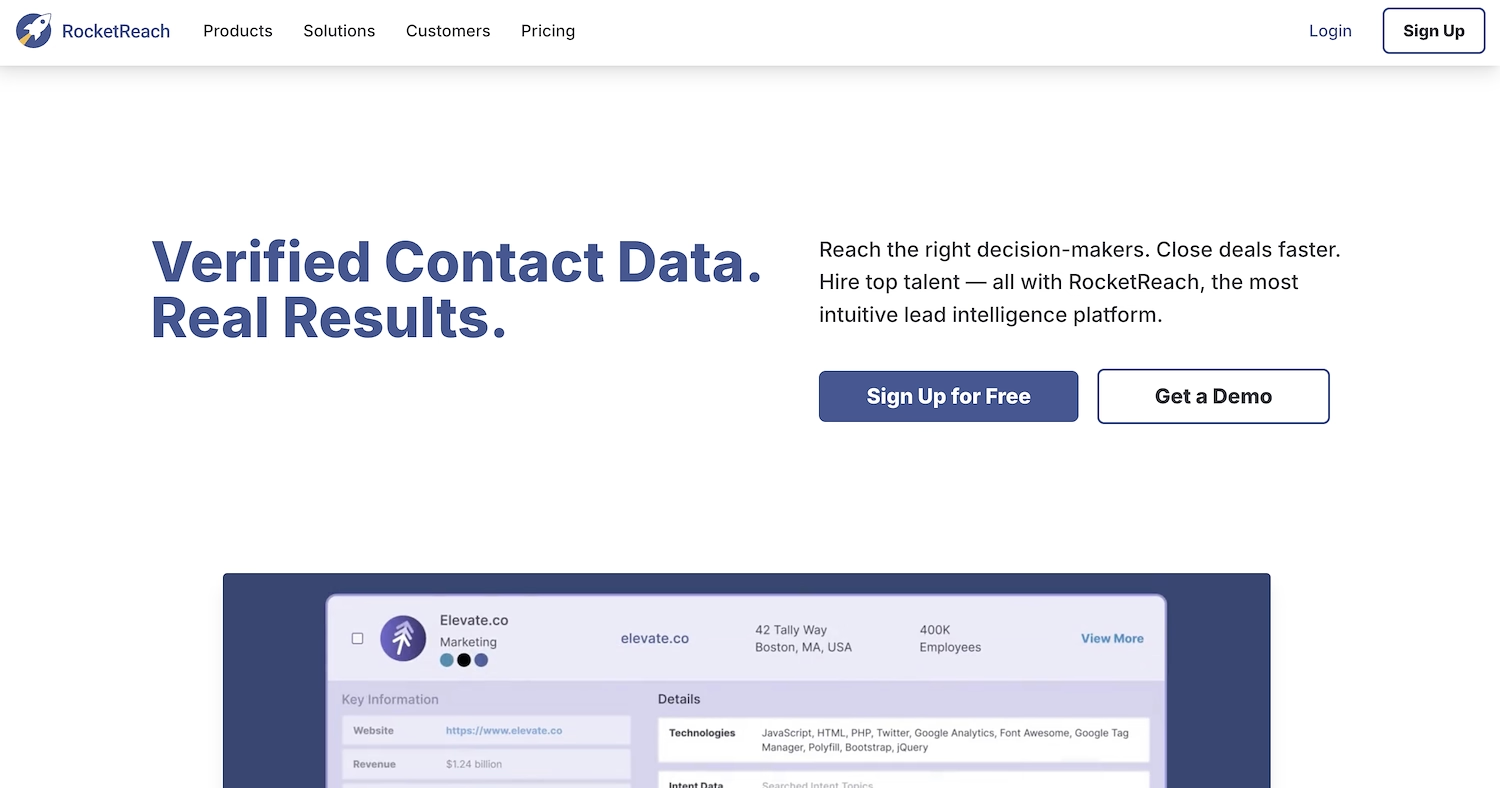
RocketReach is a platform to find contact information. It gives sales and recruiting teams access to a large database of emails and direct dials for professionals worldwide. Users can look up specific people or build lists for outreach campaigns to connect with key contacts.
RocketReach's Main Features
- Provides real-time access to a database of over 700 million professionals across 35 million companies.
- Offers advanced search capabilities, bulk lookups, and browser extensions for Chrome and Edge.
- Includes a powerful API and prebuilt integrations for platforms like Salesforce, HubSpot, and Salesloft.
- Contains specialized contact information for professionals in the healthcare industry.
How RocketReach Compares To useArtemis
Average Review score: 4.4/5 stars based on 918 G2 reviews.
- RocketReach offers access to a large database with over 700 million professional profiles. This provides a wider pool of potential contacts compared to the more specialized list-building focus of useArtemis.
- It includes specialized contact information for the healthcare industry. This is a specific data focus not found in the more general B2B database of useArtemis.
- The platform provides a powerful API and numerous prebuilt integrations. This allows for more direct connections with existing sales tools in comparison to useArtemis.
- Unlike useArtemis, RocketReach offers a free plan and transparent pricing tiers. This model allows teams to test the platform's core functions before committing to a subscription.
RocketReach's Limitations Compared To useArtemis
- RocketReach does not include native email outreach tools, so users need a separate application to send campaigns. In contrast, useArtemis combines contact discovery and email outreach into one platform.
- The platform lacks a dedicated email warmup feature. This function is a core part of useArtemis and helps improve email deliverability, which is important for large-scale campaigns.
- Some users report that RocketReach's data can sometimes be inaccurate. This may be a concern for teams that need the highly verified contacts that useArtemis specializes in providing.
Budget and Pricing Considerations
RocketReach offers a free plan and transparent pricing tiers starting at $99 per month. This model provides more accessibility for smaller teams compared to useArtemis, which requires contacting sales for a custom quote. For the most up-to-date pricing, visit RocketReach's official website.
9) Snov.io
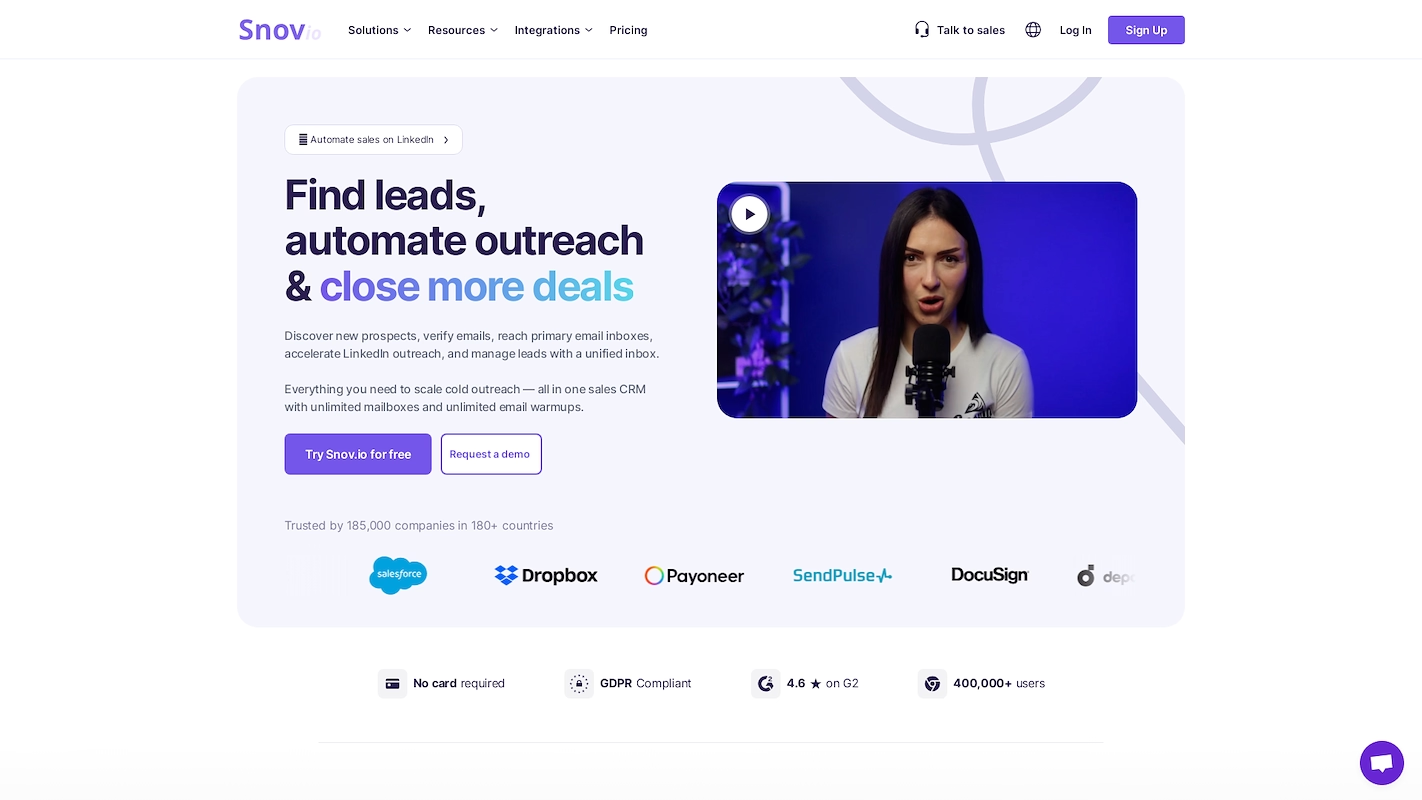
Snov.io is a sales automation platform with a suite of tools for outreach. It helps users find and verify professional email addresses and launch automated drip campaigns.
Sales and marketing teams use the system to build prospect lists and manage communication with leads through personalized email sequences.
Snov.io's Main Features
- Manages sales opportunities and the entire pipeline.
- Includes features for task and activity management.
- Automates marketing processes and lead management.
- Offers reporting and analytics with performance dashboards.
How Snov.io Compares To useArtemis
Average Review score: 4.6/5 stars based on 450 G2 reviews.
- Snov.io includes a built-in CRM to manage the sales pipeline. This differs from useArtemis, which centers on contact discovery and typically requires a separate CRM for pipeline management.
- The platform functions as an all-in-one sales tool with features for outreach and lead management. This integrated system contrasts with the specialized focus of useArtemis on contact data and email campaigns.
- It offers transparent pricing tiers and a free trial. This approach allows teams to test the platform easily, unlike useArtemis, which uses a quote-based model.
- Snov.io supports outreach on LinkedIn in addition to email. This provides an extra channel for engagement compared to useArtemis, which is primarily known for its email-centric features.
Snov.io's Limitations Compared To useArtemis
- Snov.io does not offer a dedicated email warmup feature. In contrast, useArtemis includes this function to help improve email deliverability for large-scale campaigns.
- Some users report that the platform's data verification can be less reliable. This is different from useArtemis, which focuses on providing highly verified contacts to ensure better campaign performance.
- Its all-in-one nature means the email outreach features might not be as deep as a specialized solution. In comparison, useArtemis provides more advanced functions specifically for complex email campaigns.
Budget and Pricing Considerations
Snov.io offers a free trial and transparent pricing tiers starting at $39 per month. This approach differs from useArtemis's quote-based model, making Snov.io a more accessible option for teams that want to test the platform or have a smaller budget.
10) UpLead
UpLead is a B2B data provider that gives sales teams access to contact and company information. It focuses on data accuracy and provides real-time email verification to help users build clean prospect lists.
UpLead's Main Features
- Offers a 95% data accuracy guarantee on its contact and company profiles.
- Provides intent data to identify companies that actively search for solutions like yours.
- Includes technographic data, which allows users to target based on a company's technology stack.
- Features real-time email verification to reduce bounce rates for outreach campaigns.
How UpLead Compares To useArtemis
Average Review score: 4.7/5 stars based on 899 G2 reviews.
- UpLead provides a 95% data accuracy guarantee, backed by real-time verification. This formal assurance is a core part of its value proposition and a point of difference from useArtemis's general focus on verified data.
- It includes buyer intent data to help teams find prospects who are actively in-market. This is a proactive lead generation feature not found in useArtemis, which builds lists based on static user criteria.
- The platform offers transparent pricing and a free trial. This model allows teams to test the service before purchase, which contrasts with the quote-based system of useArtemis.
- UpLead allows users to target prospects based on their technology stack. This provides a specific method to target prospects that is not a primary feature within useArtemis.
UpLead's Limitations Compared To useArtemis
- UpLead does not have built-in email outreach tools. Teams need a separate application to send campaigns, whereas useArtemis integrates contact discovery with outreach functions.
- The platform lacks a dedicated email warmup feature. This is a key function in useArtemis designed to improve deliverability for large-scale email campaigns.
- Its primary function is data provision. For teams that need an all-in-one solution to build lists and execute campaigns, useArtemis offers a more integrated experience.
Budget and Pricing Considerations
UpLead offers a free trial and transparent pricing plans starting at $74 per month. This makes it accessible for teams to evaluate its data quality, unlike useArtemis, which has a quote-based model.
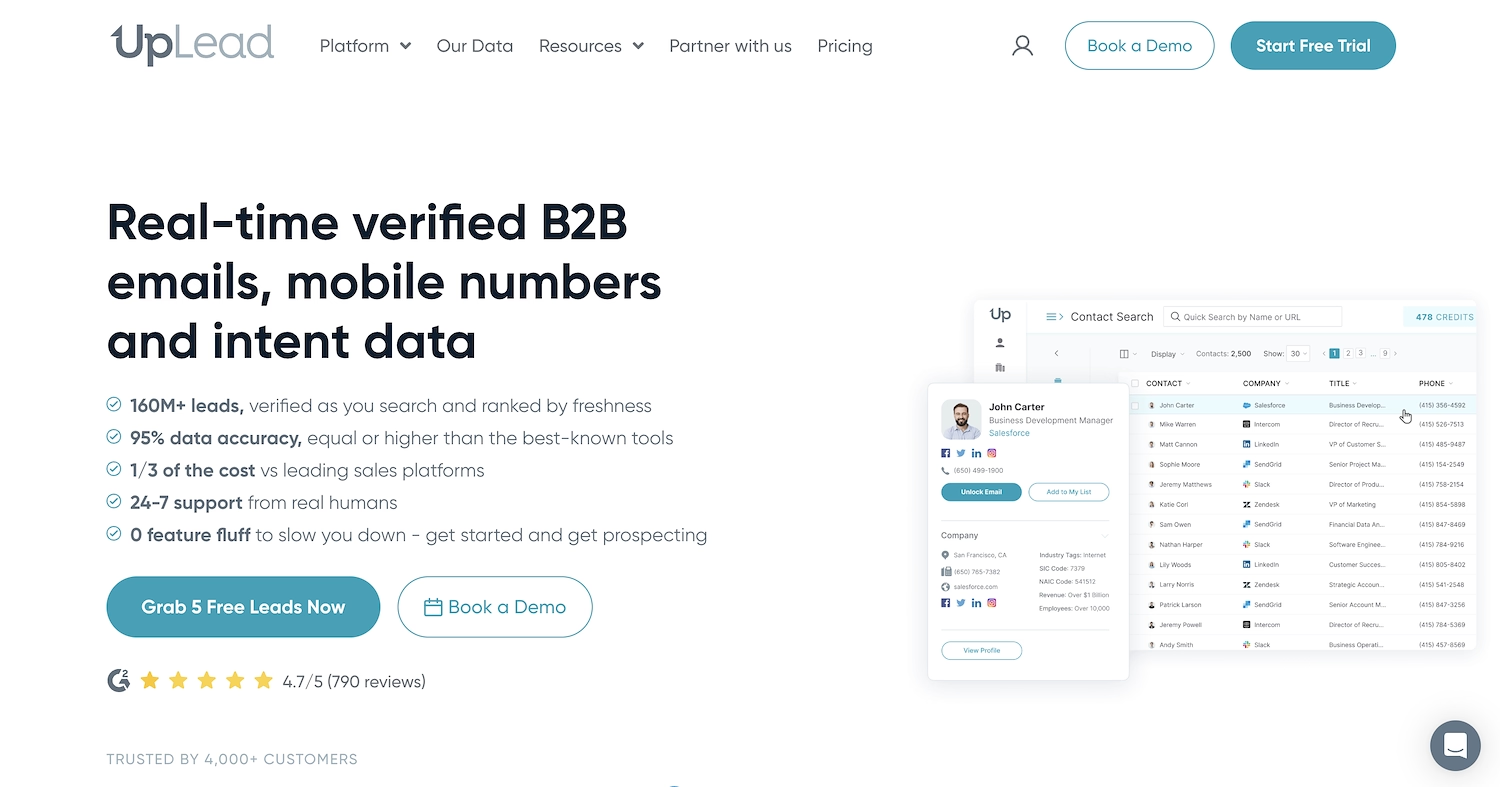
UpLead is a B2B data provider with contact and company information. It offers real-time email verification for clean prospect lists, backed by a 95% accuracy guarantee. The platform also provides intent and technographic data to help target outreach campaigns.
UpLead's Main Features
- Builds lead lists using more than 50 search filters, including intent data.
- Verifies emails in real time to maintain data accuracy.
- Integrates with CRMs like Salesforce and HubSpot to automate workflows.
- Cleans and enriches existing contact and company data records.
How UpLead Compares To useArtemis
Average Review score: 4.7/5 stars based on 797 G2 reviews.
- UpLead offers a 95% data accuracy guarantee with real-time verification. This provides a formal assurance of data quality, which is different from the general verification approach of useArtemis.
- It includes buyer intent data to identify prospects who are actively searching for solutions. This proactive feature differs from useArtemis, which builds lists based on static user criteria.
- The platform has a free trial and transparent pricing plans. This model lets teams test the service before buying, which contrasts with the quote-based system of useArtemis.
- This tool allows users to target prospects based on their technology stack. This provides a specific filtering method that is not a primary feature within useArtemis.
UpLead's Limitations Compared to useArtemis
- UpLead requires a separate tool for email campaigns, as it has no native outreach function. In comparison, useArtemis allows users to manage the entire process from list creation to email dispatch within one platform.
- The tool does not offer an email warmup service, which prepares a new account for mass email sends. This function is part of useArtemis and helps protect sender reputation and improve email deliverability for large campaigns.
- This platform's focus is data provision, so it acts as one part of a sales stack. In contrast, useArtemis provides a more unified experience that includes both data discovery and campaign execution in a single workflow.
Budget and Pricing Considerations
UpLead offers a free trial and transparent pricing plans starting at $99 per month. This makes it accessible for teams to evaluate its data quality, unlike useArtemis, which has a quote-based model.
Which One Should You Go With?
Many variables influence the choice of a useArtemis alternative. This guide reviewed several options to help with your decision-making process, highlighting the features and limitations of each tool to inform your selection.
If your goal is to automate sales operations, 11x offers a different approach. Its digital workers manage tasks like prospecting, outreach, and lead qualification on a unified platform, which can reduce the need for multiple point solutions.


